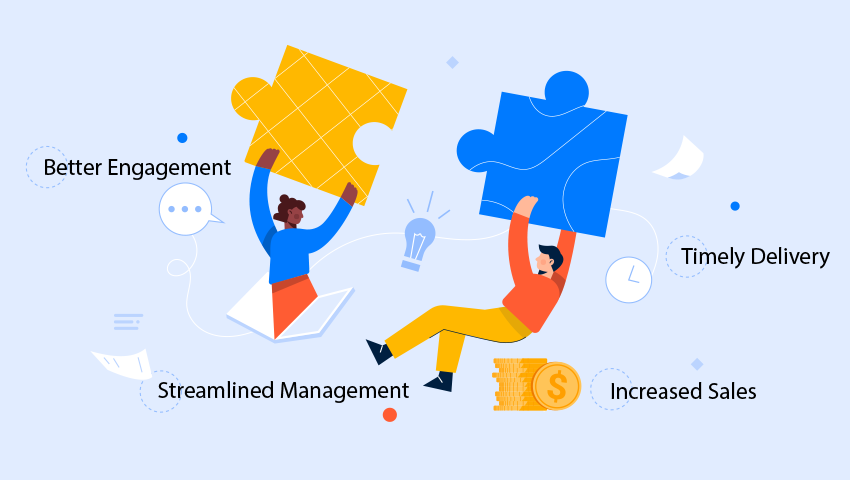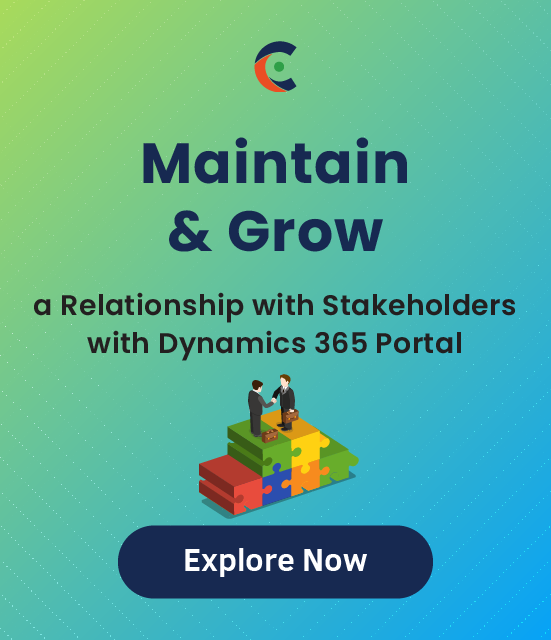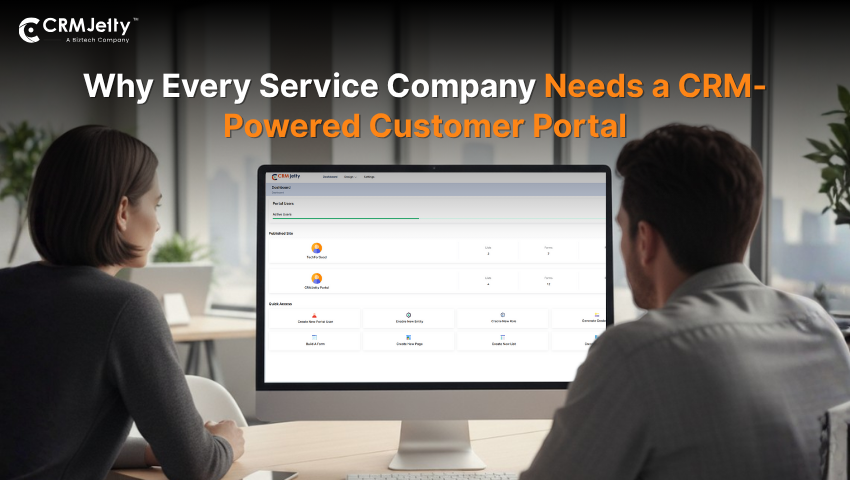Customer service and marketing are two important and distinct departments of any business. The two departments are very different from one another. While one focuses on improving the experience, the other focuses on increasing sales.
However, in the era of social media and online reviews, businesses realize that the unification of these two departments is essential to achieve goals faster.
The unification of these two departments solves age-old problems. It keeps the customer service team updated about the promotions that the marketing team advertises. The marketing team is well aware of the customer service problem in the area they are targeting. This is on the human level. Wonder what you can accomplish by integrating a self-service portal with a marketing module? The result will be remarkable.
Hence, in this article, we will discover how businesses can integrate Dynamics 365 Marketing module with their Dynamics 365 portal. What results will it yield? Whether it’s the right choice or not.
Overview of Dynamics 365 for Marketing
Dynamics 365 Marketing is a marketing automation app within the Dynamics suite that allows businesses to execute various marketing campaigns, create personalized experiences, generate leads, align sales with marketing goals, get a 360-degree business view, and improve ROI using the required tools and features.
Microsoft Dynamics 365 Marketing offers various capabilities such as designing and delivering email marketing campaigns, creating landing pages, automated customer journeys, promoting, managing, and analyzing marketing events, built-in analytical dashboard, smart scoring, etc.
How does Portal Integration Affect Microsoft Dynamics 365 Marketing Features?
Dynamics 365 Marketing enhances customer experience via interaction, engagement, and delivery. The purpose of a Dynamics 365 portal is to improve customer service by enhancing digital interaction, collaboration, and proactive support.
While integrated, businesses can benefit from all the marketing features: orchestrate real-time customer journeys, design real-time customer interactions, win customers through loyalty programs, manage and nurture leads, and create engaging AI-assisted content.
Once integrated, businesses can access all these data directly from their portal. For instance, they can map the customers’ journey and leverage it to provide personalized customer service. They can create personalized promotional emails using the gathered data from CRM, portal, and marketing module. The chances of returning customers are high as customers get the level of service and interaction they expect.
Customers can get access to marketing-specific web pages directly from the portal. For example, if they have to register attendance for a webinar, they can log in to the portal and register their attendance. If there is some scoring on this attendance, they will be allotted the scores directly. This feature helps track where prospective lead is in the sales funnel.
Suppose you’re targeting the real-estate industry; you can design a custom page specifically for that audience using the portal’s drag and drop feature. You can also create campaign-specific landing pages. When customers visit your site, you can interact with them with a targeted advertisement and a contact us form. This way, you can gather new prospective lead information and act accordingly.
The integration enables you to visualize customer interactions and track your team’s performance, leads, sales, and overall business performance. The integration of Power BI provides you with better insights. It gives you a reality check in facts and numbers.
Collaboration was possible with the portal. But with Dynamics 365 Marketing and the built-in Microsoft Teams chat, you can collaborate with your team without leaving Canvas or email editing experience.
Dynamics 365 marketing, when integrated with the portal, creates a unique experience. It provides businesses a 360-degree view of customer interactions and helps enhance the overall customer experience.
Choose Whether you Should Integrate Marketing Module or Not
You should integrate a Microsoft Dynamics 365 marketing module into your Dynamics 365 portal according to the benefits and capabilities. However, Dynamics 365 portal offers limited flexibility and is costly. For every certain number of users and logins, the subscription cost increases. In such a case, integrating other apps from the Dynamics suite might double or triple the cost. Besides, you don’t know the features it might offer or how much flexibility it would offer. Hence, I suggest that you go for a custom-developed Dynamics 365 portal.
What is Right for your Business?
A custom Dynamics 365 portal that offers flexibility to extend the features per your business requirements means that if you want to use a Dynamics 365 marketing module, you can get all the features custom developed in your solution. Besides, you won’t have to pay extra whenever a new user registers.
Dynamics 365 Portal is a custom solution by CRMJetty that can be tailored to your business needs. Whether you need marketing-specific features or sales-related, you can get it all in your portal solution.
All product and company names are trademarks™, registered® or copyright© trademarks of their respective holders. Use of them does not imply any affiliation with or endorsement by them.







